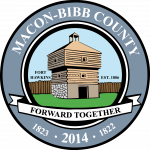Macon Judicial Circuit District Attorney David Cooke gave the following statement at a news conference Thursday, Sept. 6, 2018:
On the night of Sunday, November 6, 2016, I was at home with my family when I received one of the worst phone calls of my career. It was one of the worst phone calls of my life. In that call, I learned that Peach County Sheriff’s Office Sgt. Patrick Sondron and Deputy Daryl Smallwood had been shot in the line of duty, and that it appeared that neither man would survive.
Hearing initial reports from the scene, it was clear that this was an unjustified, malicious killing of two officers. I knew right away that I would be seeking the death penalty against their executioner.
Driving down I-75 towards the crime scene, I set aside my grief and concentrated on how we’d best get justice for the officers. I wanted to make sure that everything we did from the outset of the investigation would be with an eye toward making the death penalty available as an option — and that nothing we did or did not do would jeopardize the possibility of Ralph Stanley Elrod Jr. receiving the ultimate punishment.
I called Sheila Ross, the director of capital litigation for the Prosecuting Attorneys Council of Georgia, as I drove. We talked about the best practices used across the nation in cases such as this one. That discussion shaped how witness interviews were conducted that night and led me to hire an expert witness while standing there at the crime scene.
Even in the early days of the investigation I began formulating the closing argument we’d need to give for a jury to unanimously not only find the defendant guilty of murder, but also to sentence him to death. Although the death penalty has been sought by Georgia district attorneys about 300 times in the past dozen years or so, I knew only 13 cases had made it to a death verdict.
By design, the death penalty is reserved for those who commit the most heinous crimes. I knew that Mr. Elrod deserved that fate.
In preparation for the trial, I agreed to lend ADA Elizabeth Bobbitt to the Towaliga Judicial Circuit to work on their death penalty case against another cop killer, Christopher Calmer. I wanted her to get insight that could prove useful in our case. When Elizabeth was hired as the Towaliga Circuit’s Chief Assistant, I arranged for her to remain on the Elrod case. Additionally, we hired a law clerk specifically to assist in the death penalty litigation.
I say all this to make it clear that this was a death penalty case from the beginning and remained so until recently.
In the past few weeks, you may have heard some criticism after word started spreading that we’d accept a plea from Mr. Elrod. Please understand that my silence on the matter wasn’t a way of hiding or avoidance. As a prosecutor, I’m bound by certain ethical rules that limit what I can say while a case is still pending.
If I’d commented, it’s very likely that in the event that Mr. Elrod did not plead guilty today that we’d be looking for a place hundreds of miles away to hold the trial due to pre-trial publicity. Few people knew it, but our plan had been to drive jurors from Sumter County to the courthouse in Fort Valley so it would be more convenient for the deputies’ families and coworkers to attend the trial.
The decision to accept a plea wasn’t one made rashly or without a lot of thought. In fact, I’d previously refused a plea offered by the defense. I said I’d only allow it if I was approached by the deputies’ families and if they wanted it. And that’s what ended up happening.
We’d been in court one morning this spring arguing pre-trial motions and I’d gone to lunch with Elizabeth, ADA Cindy Adams and Byron Police Detective Sgt Melanie Bickford, deputy Smallwood’s fiance. Sitting around a table at American Philly and Wings, we discussed strategy for the case. During that discussion, Sgt Bickford expressed concerns about whether the defendant would in fact get the death penalty. She said she was tired of him being treated like a celebrity, featured in news stories at each court hearing. Sgt Bickford wanted to offer a plea deal for life without the possibility of parole and she suspected others within the two families felt the same way.
I nearly fell out of my chair hearing Sgt Bickford talk. The trial team met with members of the two families later that afternoon. Almost all of them wanted to see the case end, and soon, with a sentence of life without the possibility of parole. I realized that although Sgt Bickford was the first to mention a plea deal, others had been having the same thoughts independently.
In the months since then, we’ve met with the families multiple times. We wanted their decision to be an informed one, one that they wouldn’t regret and that they’d be comfortable with for years to come.
As prosecutors, we know that our primary burden to carry is the evidence that leads to a conviction, and, in death penalty cases, a punishment. While our burden is a heavy one, one that we gladly accept, victims’ families carry the burden of grief every day. In my years as a prosecutor, I’ve seen how that burden grows even heavier as the months and years pass before a trial.
It’s not uncommon for the burden of grief to become so heavy that family members, particularly parents, die before getting justice. I still remember one of the first death penalty cases I worked on, almost 20 years ago. The killer murdered his ex-wife’s son and daughter. The weight of those children’s deaths and the legal process bore down on their mother and she died, literally of a broken heart, before the case was over.
That’s why when a mother tells me that she doesn’t think that she can live through a trial, I listen. And when the majority of family members say they agree, I know what must be done. I have an obligation to consider what I think those fallen deputies would say to me if they could speak today.
If they could hear their mother say, “Son, I don’t think I can make it through this case alive,” I know what they’d say. And you do too. They’d say, “Mom, I’ve got this. Let me take this burden from you. You don’t have to do this because of me.”
We know this because these two deputies lived their lives sacrificially. In my faith tradition, there’s a concept of giving your life as a living sacrifice to the greater good. And that is what these deputies did. They lived their lives every day as a sacrifice to others. Even unto death they did.
Not to preach, but my faith tradition also says that “Greater love hath no man than this, that a man lay down his life for his friends.” hese two fallen deputies gave their lives, not just for friends, but for strangers. For their community. No one displayed more love or sacrifice to others than Sgt. Patrick Sondron and Deputy Daryl Smallwood.
And knowing all that, I know neither of them would want another innocent person to suffer on their account, and why they would want to honor their parents’ wishes for a life without parole sentence.
Some people in our community may think that honoring these deputies and backing their surviving brothers and sisters in blue means the only way to achieve justice is a death sentence. While I support the death penalty and firmly believe Mr. Elrod deserves to die for what he did, that’s not all that matters here. In this case we honor Deputies Sondron and Smallwood by supporting their parents, giving them the backing their sons can no longer give.
Also, I’ll tell you that a Middle Georgia police officer unrelated to this case called my office a few months ago. He said he’d lost a fellow officer in the line of duty and had later gone to the execution for the man who’d killed him. After waiting years for final justice, the officer said he didn’t feel any differently after seeing the man who’d killed his friend die. It didn’t do anything to help him feel closure, or justice, or ease his pain.
It’s important to point out that the majority of the family’s decision to ask me to accept life without parole was not made for the defendant’s benefit. It was made for theirs. Likewise, my decision to honor the wishes of the majority of the family was based purely on what I realized was best for them, and what I thought Patrick and Daryl would want for their families.
I understand that there are some family members who disagree with this decision. We’ve met with them numerous times, just as we have with the family members who support the plea. I don’t think their desire to see Mr. Elrod get a death sentence was selfish. It’s understandable. However, given the concerns of the family and what I believe these deputies would want, I made the decision that resulted in Mr. Elrod being sentenced today to two consecutive sentences of life without the possibility of parole plus an additional 100 years.
With his guilty plea, his chances for appeal are nearly non-existent as compared with the decades of appellate hearings that would have followed a death sentence. He’s not going to have teams of law students fighting for his freedom. No one will light a candle on the night of his death in protest. He’ll die quietly in prison, alone.
My thoughts and prayers will continue to be with all the family members of these deputies.

